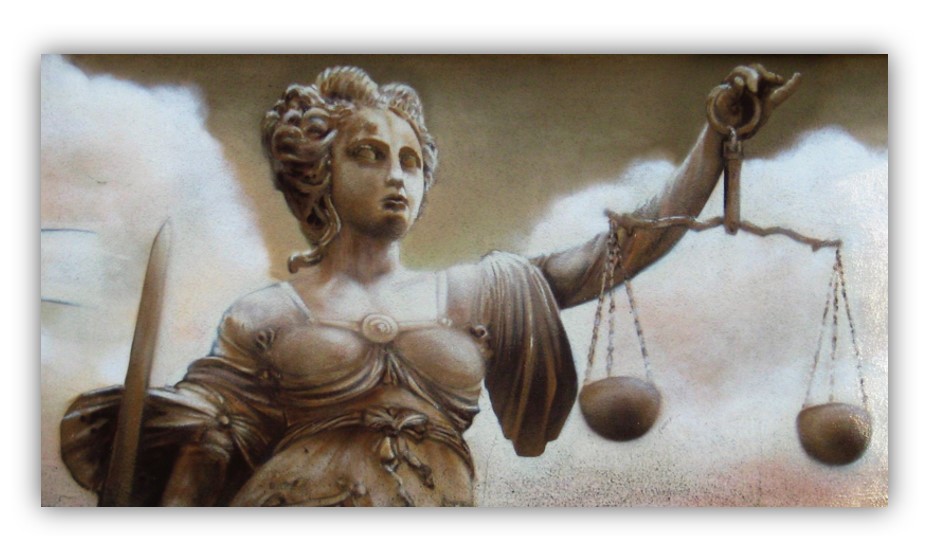Image from Wikimedia
Though justice be thy plea, consider this –
That, in the course of justice, none of us
Should see salvation: we do pray for mercy.
– Portia, The Merchant of Venice
PLACE and TIME
Hôtel de Langeac, Paris.
1788.
CHARACTERS
THOMAS, male, tall, black, 45.
SALLY, female, white, 15.
LADY JUSTICE, dressed in white, blindfolded, with a sword in hand and a 6-foot self-supported replica of the scales of justice standing at her side.
… in the dialogue indicates a thoughtful break.
SCENE 1
Downstage center: Behind a scrim THOMAS and SALLY, in silhouette, remove the robes they are wearing and begin caressing.
SALLY jumps into the arms of THOMAS, wrapping her legs around his waist.
A knock at door of their hotel room.
She jumps down, and they hurriedly dress.
Darkness.
SCENE 2
In general darkness LADY JUSTICE enters, stage right, in a spotlight.
LADY JUSTICE
People, on balance, don’t own their bodies. They lease them.
And unlike cats, who hide their final remains away, people generally leave their bodies to family, morticians, priests, or medical schools.
Sometimes to historians, with letters of instruction and final words.
This is not to say that people may be owned by others.
Justice abhors slavery. Justice holds these truths to be self-evident:
That all human beings, regardless of race, are endowed at birth with the inalienable rights of life, liberty, and the pursuit of their dreams.
Contrary to that law: Thomas, whom we just saw, age 45, owns Sally, age 15.
Does he own her love? I think not. Love is not owned; it is leased as well.
But desire? That’s a different story.
People do own desire. And its consequences.
And honor and reputation.
They are owned, not leased. Lost, not stolen.
Forged by one’s own efforts and suffering, not birthed by their mother’s labor.
One thing more, before we return to our play’s 45 and 15-year-old protagonists.
By day we are as others see us. At night we are ourselves.
But either way we are solitary creatures. We must own that fact and not let ourselves become paralyzed by loneliness.
For the indolence of loneliness is what causes human relationships to be repeated through history with such unspeakable monotony and boredom.
I am Justice. I stand for Justice. But does Justice stand for me?

